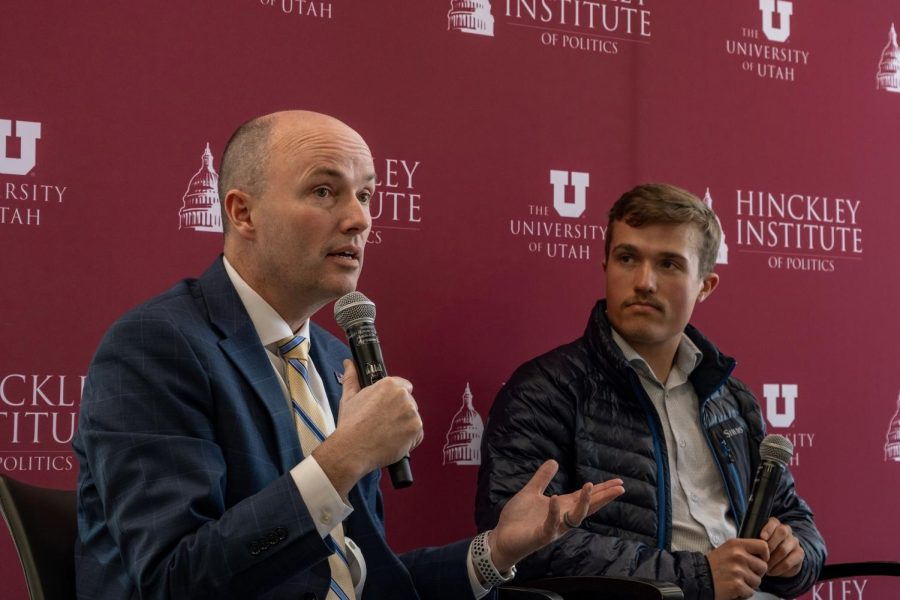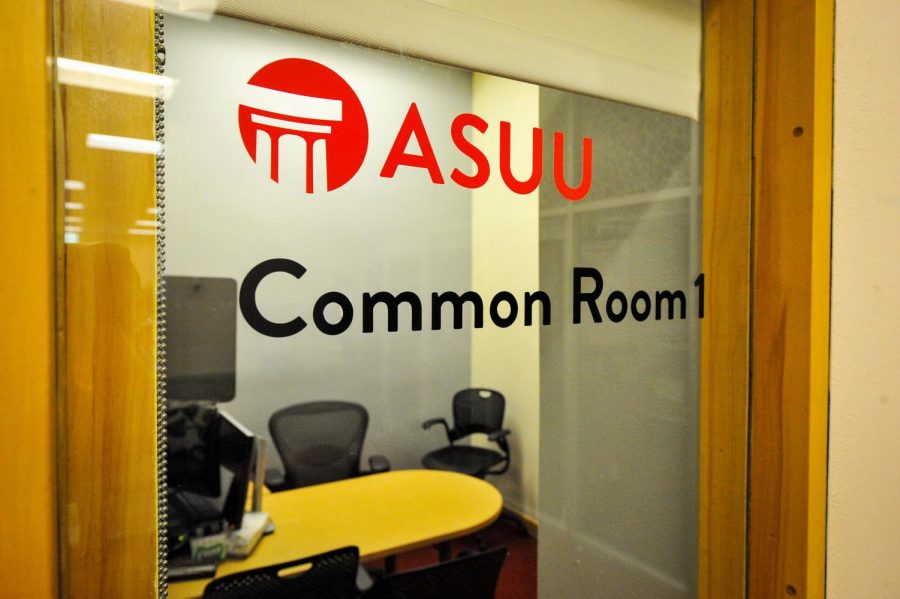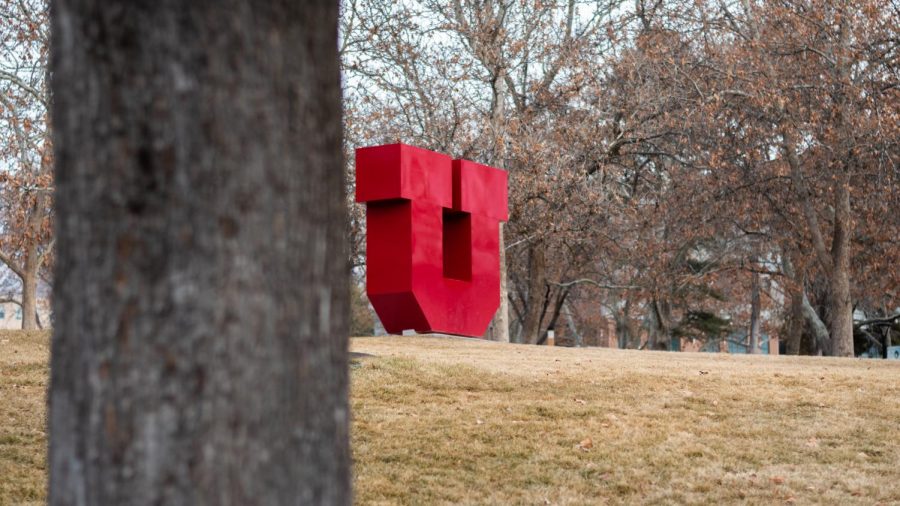Gov. Spencer Cox Visits the U with Benji Backer to Discuss Environmental Action
Utah Gov. Spencer J. Cox speaks alongside Benji Backer during the Climate Innovation in a Red State forum at the Hinckley Institute of Politics in Salt Lake City on Monday, Feb. 27, 2023. (Photo by Marco Lozzi | The Daily Utah Chronicle)
February 28, 2023
On Monday, Utah Gov. Spencer Cox and President and Founder of the American Conservation Coalition Benji Backer were panelists for the Climate Innovation in a Red State Forum to discuss environmental action topics such as bipartisanship, active management and power plant permitting.
The Hinckley Institute of Politics hosted the forum.
The American Conservation Coalition is a non-profit organization that mobilizes young people to take environmental action through principles like capitalism, localism and innovation. Its website says everyone should feel empowered to discuss conservation, clean energy, sportsmen’s rights, agriculture and climate, through the lens of conservative ideals such as market-based competition and limited government.
Backer said Republicans have not had a seat at the table when it comes to environmental action. “We’re trying to mobilize the younger generation of center and right of center people to show that it’s okay to engage on this, that it’s actually beneficial to engage on it,” he said.
Backer added that conservatives love the environment, but the rhetoric in recent years hasn’t been good. “I think it’s up to young people to say, ‘look, these environmental issues, these climate issues, they are much more important than [a] political party.’”
Climate change is a contentious issue between Republicans and Democrats. However, Cox believes mineral extraction is key to forging the future of renewable energy sources and political bipartisanship. “This is an area where the right and left can come together: mineral extraction,” he said during the forum. “If you want electric vehicles, battery-powered, whatever, we need these minerals and right now you can only get them from China.”
“Liberal governors know we need this stuff, the Republican governors are excited to help them get this stuff,” he added. “If you are on the left, I hope you will see the wisdom and the goodness in having people on the right engaged in this issue even if you don’t agree with 100% of what they’re trying to do, or the solutions. I think it’s really necessary.”
“We want the days of climate denial on the right to be over. We want the days of climate conversation and climate dialogue and climate debate to begin,” Backer said. “It can’t just be in D.C., it has to be outside of D.C., in real America, and Utah is really important for that.”
Forest Treatment, Wildfires, Active Management
Western states face devastating wildfires and forest fires each year, affecting air quality and watersheds.
Cox said Utah has engaged in small-scale tree thinning projects and forest treating to help prevent wildfires. He said pine trees, pinyon trees and juniper trees use a lot of water, so getting rid of them can help preserve the forests.
He added the difference between treated forests versus untreated forests is substantial when it comes to wildfire devastation. “When the fires do come in those [untreated] areas, some adjacent areas, they burn much hotter and are much more devastating,” he said.
Backer said forest management is important when trying to reduce emissions. He said, “what we do with electric vehicles and solar panels, and transmission and other renewables, it will not matter if we don’t get the forest fire situation figured out.”
Salt Lake City Councilwoman Dea Theodore cited that a large portion of the 7.6 billion trees within Utah forests are largely overgrown and unhealthy. Tree thinning is a process of cutting down unhealthy trees to preserve forest health. “The thinning of overgrowth in the Great Salt Lake Basin would restore over 1.5 million acre-feet of water per year to the Great Salt Lake; enough to have the Lake on its way to restored water levels over the next 5 years,” she said in a letter to the governor and legislative leadership in January.
NEPA and Power Plant Permits
The National Environmental Policy Act works to make decisions on permitting applications for the construction of power plants, and federal land actions along with the construction of highways and other publicly operated facilities.
Cox said while he was at the White House a few weeks ago, he and President Biden discussed permitting reforms. “He’s very frustrated because the laws that have been set up to protect the environment are now making it impossible to do the things that we know are going to help,” he added.
The permitting process is widely viewed by both Republican and Democratic politicians and environmental organizations as too drawn out and delaying the construction of renewable energy power plants.
“It can take us 10 to 12 years to get the permits we need going through the NEPA process now,” Cox said. “We need shot clocks on decisions that need to be made that can just be punted — it can take years just to get those decisions that will then be litigated.”
Backer added that regulations enforced by NEPA hamper development of solar and other renewable energy projects. “They’re all just sitting there in a queue, like a Spotify queue, but you’re not pressing play and the government is not pressing play, and we’re not getting anywhere,” he said.
The ACC, which Backer founded, will be holding its second summit in Salt Lake City, June 15-17. Backer says Salt Lake City is a prime location for conservatives to meet about environmentalism with the additional asset of being in a red state.
“Republicans’ narrative on this has been hard to grapple with over the last couple of years or decades,” he said. “But that’s literally why ACC exists is to rebuild that bridge that used to be there in the environment.”










